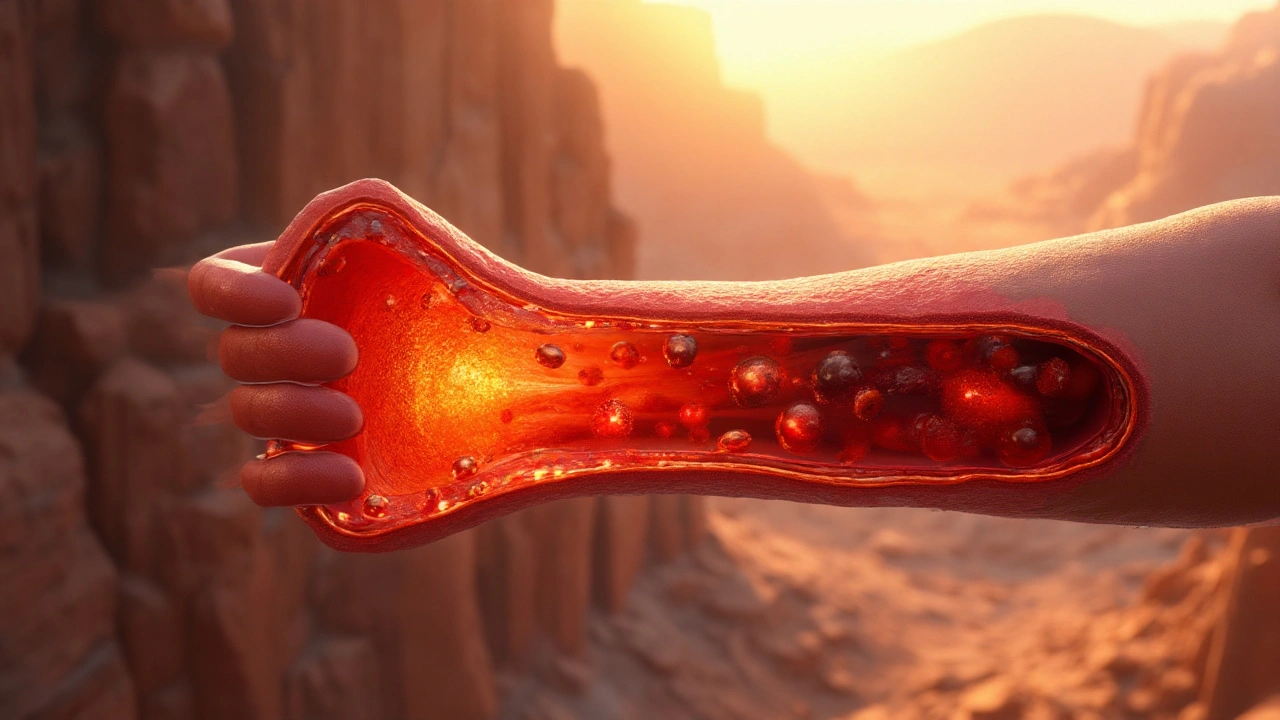Ever notice you feel dizzy after a marathon or a hot day? That’s often a sign of hemoconcentration – a condition where the liquid part of your blood shrinks, making the cells pack tighter together. It’s not a disease on its own, but it can make other health issues worse, especially if your blood gets too thick.
Most of the time hemoconcentration shows up when you lose a lot of fluid. Think sweating, vomiting, diarrhea, or even a fever that burns through water fast. When plasma (the watery part of blood) drops, the concentration of red cells, white cells, and platelets goes up. The result is higher blood viscosity, which can strain your heart and make clots more likely.
A few medical situations can also push the needle up. Severe burns, kidney problems that keep fluid from leaving the bloodstream, and certain medications (like diuretics) all tip the balance toward a thicker blood mix.
Typical clues include a rapid heartbeat, feeling light‑headed, or noticing darker urine. Some people report a “thick” sensation in their veins when they press on the skin. Lab tests will show a higher hematocrit – the percentage of red blood cells – and sometimes an elevated blood pressure reading.
If you have a chronic condition like heart failure or diabetes, keep an eye on these markers. Even a small rise in blood viscosity can tip the scales toward a clot or a stroke.
The simplest fix is to replace the lost fluid. Water works, but sports drinks with electrolytes help restore sodium and potassium faster. For severe cases, doctors may give intravenous saline to push plasma volume back up.
Adjusting meds is another tool. If a diuretic is making you too dry, a doctor might lower the dose or add a potassium‑sparing alternative. Monitoring your weight each morning can flag fluid shifts before they become a problem.
If you feel persistent dizziness, chest pain, or notice swelling in your legs, call a healthcare professional. These could be signs that hemoconcentration is stressing your cardiovascular system.
People on blood thinners should be extra careful. Thickening blood can change how those drugs work, so a quick check‑in with your pharmacist or doctor is wise.
Bottom line: hemoconcentration is a warning sign that your body is low on fluid. Catch it early, hydrate smartly, and keep an eye on any underlying health issues. A little attention now can keep your blood flowing smoothly and protect you from bigger problems later.

Explore how dehydration alters blood chemistry, raises viscosity, and triggers platelet activity, dramatically boosting the chance of dangerous clots.
